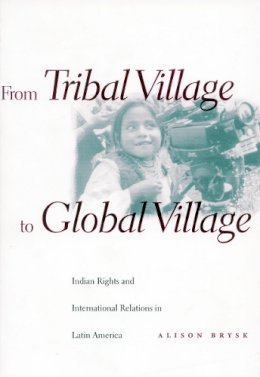
Stock image for illustration purposes only - book cover, edition or condition may vary.
From Tribal Village to Global Village: Indian Rights and International Relations in Latin America
Alison Brysk
€ 176.84
FREE Delivery in Ireland
Description for From Tribal Village to Global Village: Indian Rights and International Relations in Latin America
Hardback. This work examines the unexpected impact of the Indian rights movement on world politics, from reforming the United Nations to evicting oil companies. It argues that marginalized people have responded to globalization with new forms of identity politics that reconstruct power relations. Num Pages: 400 pages, 6 tables. BIC Classification: 1KL; JFFS; JFSL9; JPVH; KCP; RNP. Category: (P) Professional & Vocational; (UP) Postgraduate, Research & Scholarly; (UU) Undergraduate. Dimension: 5817 x 3887 x 29. Weight in Grams: 653.
Read more
In Ecuador, every year since 1990 Indian protestors have brought the country to a standstill; in Mexico, Zapatista indigenous guerillas rose up in arms to protest North American free trade. In Brazil, shamans faced down bulldozers to block World Bank dams, while in Bolivia, peasants attacked U.S. troops for the right to grow coca. These are a few examples of...
Product Details
Format
Hardback
Publication date
2000
Publisher
Stanford University Press United States
Number of pages
400
Condition
New
Number of Pages
400
Place of Publication
Palo Alto, United States
ISBN
9780804734585
SKU
V9780804734585
Shipping Time
Usually ships in 15 to 20 working days
Ref
99-15
About Alison Brysk
Alison Brysk is Associate Professor of Political Science at the University of California, Irvine. She is the author of The Politics of Human Rights in Argentina (Stanford, 19
Reviews for From Tribal Village to Global Village: Indian Rights and International Relations in Latin America
“Drawing upon exhaustive, original research on indigenous political movements in five Latin American countries, this impressive work provides a sophisticated, persuasive, and nuanced analysis of how even the poorest and most marginalized groups in Latin American society can influence broader national and international institutions by projecting ethnic identities onto the global stage.” —Kenneth M. Roberts, University of New Mexico
